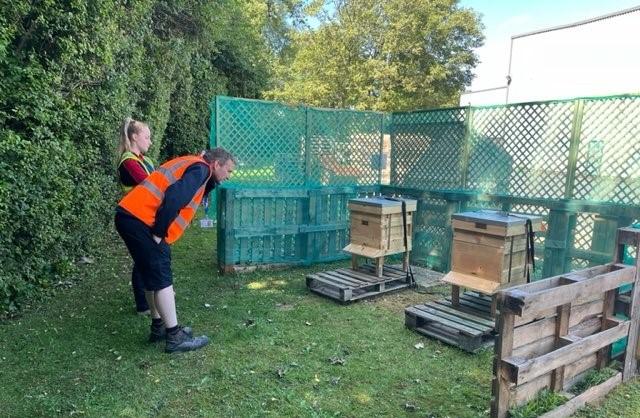
Unipart Dorman, a leading designer and manufacturer of innovative Rail and Traffic Management products, introduced two new beehives to support the welfare of the surrounding wildlife.
The Unipart Dorman site’s position in an area teeming with agricultural activity, and parallel to the Northern Rail line, meant it was an ideal location for this unique and exciting project.
Conor Lawlor, Unipart Rail Health, Safety and Environmental Manager, explained: “We chose the Dorman site because it offers a suitable location away from the work area with ample forage from domestic gardens, agricultural land, and the surrounding area in Southport.”
The introduction of the new beehives serves the twofold purpose of enriching the biodiversity of the area, and supporting Unipart Group’s biodiversity action plans, emphasising Unipart’s steadfast commitment to environmental conservation and sustainability.
The long-term nature of this project allows Unipart to leave a positive impact on the environment for years to come, and is one of many initiatives guided by the Unipart Net Zero 2040 approach.
Jake Aindow, Senior Material Controller, explained how the hives will play a vital role in sustainability and engagement: “Bees are crucial to keeping a healthy ecosystem and also important for our food production.
“We wanted to use this opportunity to develop a workforce who feel encouraged and supported to try new things, such as bee-keeping, especially if it allows us to support the environment. We hope to be in a position in the summer to be able to offer this honey to team members on site.”
Both hives have seamlessly settled in after relocating from the temporary apiary in Formby, adjusting well to their new surroundings. The site is proactively supporting the hives for winter by providing fondant icing to sustain them throughout the winter when natural stores might be insufficient.
By understanding the significant role played by surrounding wildlife, all Unipart sites can ensure sustainability is at the forefront of all processes, and can continue to build a bright future for the planet.